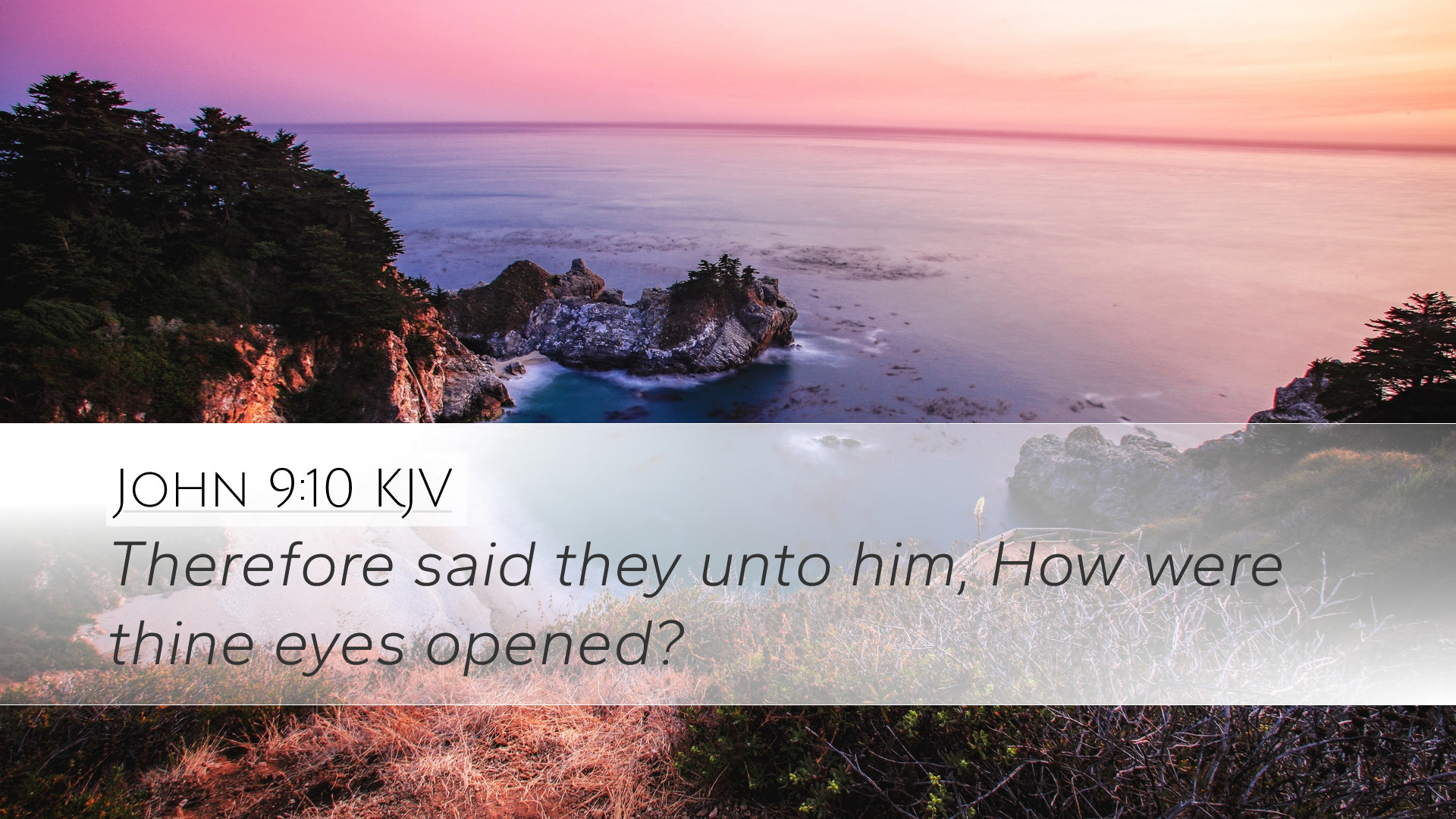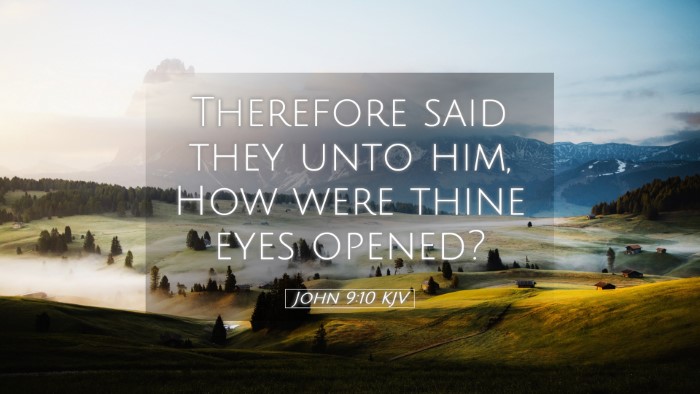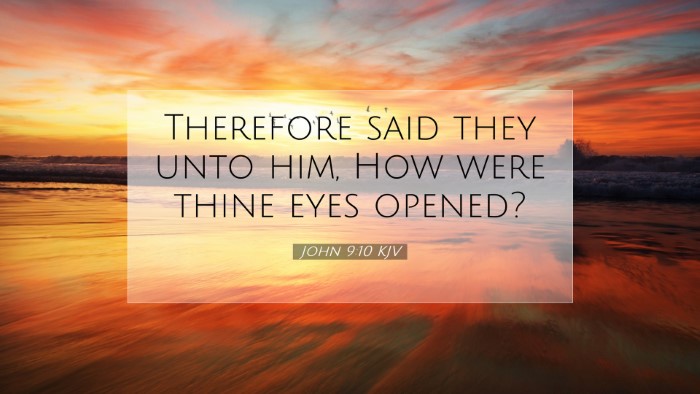Commentary on John 9:10
Verse: "Therefore said they unto him, How were thine eyes opened?"
Introduction
The question posed in John 9:10 arises in the context of a notable miracle performed by Jesus, where He restored sight to a man who had been blind from birth. This inquiry reflects a deep-seated curiosity and skepticism from the Pharisees and the community regarding the nature of this miraculous event. This commentary synthesizes insights from esteemed public domain theologians, aiming to illuminate the nuances of this verse and its implications for faith and understanding.
Historical Context
To grasp the significance of this miracle and the subsequent questions, it helps to understand the context. Matthew Henry notes that the healing took place on the Sabbath, which was met with disapproval by the religious leaders. This setting framed the inquiry posed in verse 10; it was not merely a question of logistics, but rather a probing of the legitimacy and authority of Jesus' actions.
The Nature of Inquiry
According to Albert Barnes, the question of "How were thine eyes opened?" reflects a dual-layered inquiry. Firstly, it suggests a recognition of the miraculous nature of the event; the man’s healing was undeniable. However, it also serves to challenge the authenticity of Jesus' ministry, positioning the questioner in a place of authority and judgment. The insistence on understanding the mechanisms behind the miracle mirrors the human tendency to seek rational explanations for divine actions.
Elements of Skepticism
- Challenge to Authority: The Pharisees, as religious leaders, sought to affirm their doctrinal stance, implicating that such healing could not occur outside of their sanctioned frameworks.
- Disbelief in the Miracle: The inquiry assumes a presupposition of disbelief; they could not fathom that God could work outside of the established religious structures.
The Blindness of the Questioners
Even amidst the miracle, the questioners remained spiritually blind. Adam Clarke emphasizes this paradox; they were physically without visible impediments yet spiritually obstructed. This invites a contemplation on the modern-day parallels — where individuals may witness divine acts but remain resistant or skeptical.
Spiritual Implications
The inquiry expresses more than curiosity; it reveals a fundamental question about recognition and faith. Faith requires humility, an element starkly absent in the questioners. Henry asserts that the reluctance of the Pharisees to accept the miracle exemplifies a broader truth regarding the nature of faith — it often necessitates the relinquishing of pride and preconceived notions.
Responses to Divine Works
Responses to God’s workings vary strongly in scripture; some ask questions that lead to belief, while others respond from a place of doubt and defensiveness. The Pharisees' question belongs to the latter category; rather than celebrating the miracle, it leads to interrogation and denouncement.
The Role of Personal Testimony
Following this question, the healed man himself becomes a powerful testament to Jesus’ authority and miraculous power. As a contrast to the questioning nature of the Pharisees, his example highlights the importance of personal experience in faith. Barnes encourages readers to consider how personal encounters with Christ can serve as evidence that transcends theological arguments.
Personal Experience vs. Theological Argument
- Personal Encounter: The blind man’s testimony becomes crucial. His direct experience of healing empowers his witness, contrasting sharply with the skeptical interrogations of the Pharisees.
- Witnessing the Miracle: True faith often invites the believer into a narrative beyond doctrine; it is rooted in an experience that others can observe and engage with.
Conclusion
John 9:10 serves not only as a moment in the narrative of Jesus’ ministry but also as a profound commentary on the dynamics of faith, skepticism, and personal testimony. The sincere inquiry from the questioners reflects a struggle that continues in contemporary faith discussions — reconciling experience with belief, and the divine actions with human understanding.
In historical and theological contexts, this verse encourages reflection on how often we might be like the Pharisees, questioning rather than believing. The invitation is clear: to witness, testify, and embrace the wonders of God, while also being aware of our own presuppositions that may obstruct our vision of His unfolding work.


